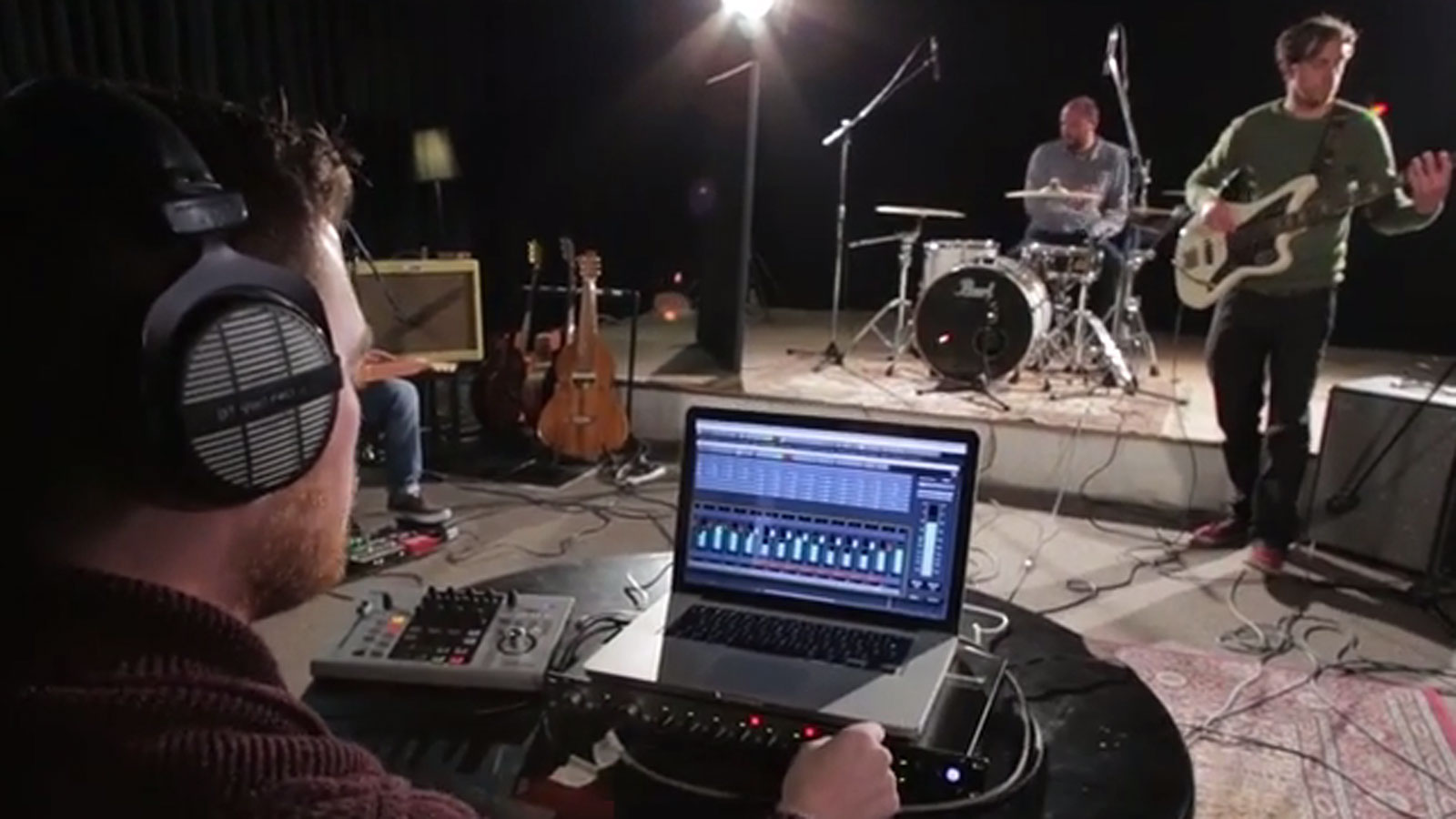How to record a band: everything you need to know
The new 10-part video series that captures your sound like the pros

Want all the hottest music and gear news, reviews, deals, features and more, direct to your inbox? Sign up here.
You are now subscribed
Your newsletter sign-up was successful
Welcome to 'How To Record Your Band', a series in which we'll be giving you all the tips and inspiration you need to nail the perfect recording and turn your practice sessions into release-ready music.
We'll set the scene with the perfect set up, before showing you how to record guitars, drums, bass, vocals and more. There's tips on how to prepare, how to manage your session, get the best from your bandmates, correct mistakes, pull off a flawless overdub and then mix and master the perfect track.
So don't waste money on expensive studios. With your laptop, an easy-to-use audio interface and the latest digital audio workstation software you can get pro results fast. And then tweak even the most... um... 'ambitious' band to perfection.
Each episode comes complete with tips from the experts and a video that shows you how the magic happens so learning from the pros couldn't be simpler.
Part 1: Preparation
Fail to prepare and you prepare to fail! So don't hit record just yet. A little work behind the scenes will ensure that your time in your studio (no matter how makeshift) is well spent and productive. Read more>>
Part 2: Set-up
Find out how to arrange your band in your chosen space. What will you need? How does it work? And how do you get the most out of it? We reveal the vital connections that have to take place before you can play a note. Read more>>
Part 3: recording drums
The drumkit is the band's biggest beast and needs special treatment. Set it up in the right place and the right way. Add mics and acoustic aids. Get your beats sounding great the quick and easy way. Read more>>
Want all the hottest music and gear news, reviews, deals, features and more, direct to your inbox? Sign up here.
Part 4: recording guitars
There are three main decisions to make about mic'ing your guitar amp; what kind of mic to use, whether you use more than one of them and how far away you place your mic or mics. Read more>>
Part 5: recording acoustic guitars
One of the best methods for mic'ing an acoustic guitar is with one or more condenser mic's, their sensitivity makes them great for picking up the rich frequencies of your guitar. But in our live band scenario that's not going to work because they will be picking up too much of the unwanted spill from the sound of the other instruments playing, and nobody will be able to hear the guitar while they're playing live. Read more>>
Part 6: tracking the band and trouble-shooting
Now we've mic'd the speakers and drums, if there are any XLR ports left in your interface it's worth adding some well-placed condenser mic's to capture the dynamic of the music in the room and add an extra dimension to your sound. Read more>>
Part 7: Tracking vocals
We decided to overdub vocals to our live instrumental session in a separate session to reduce the risk of mic spill from the other instruments and increase the chance of getting a better instrumental take for the guitarist/vocalist in the band. Read more>>
Part 8: overdubs
In episode 7 on tracking the band we talked about choosing to leave some parts like guitar solos for an overdub stage. It's best to keep these parts to a minimum to retain the live vibe of the recording and avoid noticeable contrast between performance and studio sessions but there's no reason your big solo part or low key leads can't be made to sound like it was recorded in the room when it comes to the mixing stage next. Read more>>
Part 9: the final mix
So far we've recorded our band in our rehearsal room location, added vocals, an electric guitar part and amassed a few hours worth of audio in the process. So now it's time to send the band home and bring all the elements together in the mixdown stage. Read more>>
Part 10: 10 top tips
For our final episode we're going to look back on some on ten of the most important points we've learned so far about recording a band and mixing a track afterwards. Read more>>
MusicRadar is the number one website for music-makers of all kinds, be they guitarists, drummers, keyboard players, DJs or producers...
- GEAR: We help musicians find the best gear with top-ranking gear round-ups and high-quality, authoritative reviews by a wide team of highly experienced experts.
- TIPS: We also provide tuition, from bite-sized tips to advanced work-outs and guidance from recognised musicians and stars.
- STARS: We talk to musicians and stars about their creative processes, and the nuts and bolts of their gear and technique. We give fans an insight into the craft of music-making that no other music website can.
